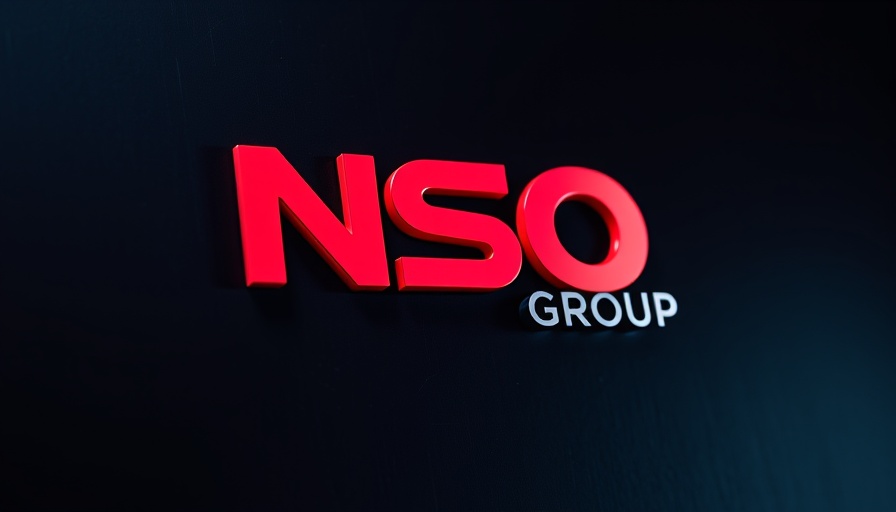
A Shift in Control: Hollywood Meets Cyber Surveillance
In a surprising move that intertwines the entertainment industry with global cybersecurity, Hollywood producer Robert Simonds has led a U.S. investment group to acquire NSO Group, the controversial developer of the infamous Pegasus spyware. This deal marks a significant moment, shifting the ownership of a company notorious for its surveillance capabilities from Israel to U.S. investors.
NSO Group has faced substantial setbacks in recent years, including lawsuits from tech giant Apple and messaging platform WhatsApp. These legal challenges contributed to its declining financial health. With the financial backing of Simonds and his team, which reportedly amounts to several tens of millions of dollars, NSO aims to restructure and regain relevance in the cybersecurity market while still undergoing rigorous Israeli regulatory oversight.
Spyware's Pervasive Influence and Ethical Concerns
The acquisition comes at a time when NSO has been embroiled in controversies surrounding its spyware's usage against journalists, activists, and political dissidents worldwide. Critics recall that the NSO's products have been implicated in targeting individuals under oppressive regimes and fuelling violations of human rights. As Robert Simonds, known for his work in mainstream films such as "Happy Gilmore" and "Ferrari," steps into a leadership role, the ethical implications of combining entertainment with spyware technology cannot be overlooked.
Simonds has expressed intentions to pivot NSO’s operations, shedding light on how the firm plans to distance itself from its tumultuous past. While he aims to harness NSO’s technology for legitimate use, skepticism remains among human rights activists and cybersecurity experts regarding his leadership in a company synonymous with harming civil liberties.
Strategic Implications of Ownership Change
Historically, NSO was founded with a vision to serve governmental entities, providing tools to combat crime and terrorism. However, its transition from Israeli ownership raises questions about objectives and oversight. Following the acquisition, control will remain under U.S. regulations, which could reshape how the company operates internationally.
John Scott-Railton, a senior researcher from the Citizen Lab, has voiced concerns that placing a company with a documented history of targeting U.S. officials in the hands of a Hollywood producer lends itself to potential misuse. He reminds us that NSO’s technology does not align with the foundational values of American democracy and privacy rights. The merging of Hollywood and surveillance technology may result in a narrative influenced more by entertainment than ethics.
Catalysts for Cybersecurity Evolution
The implications of this acquisition extend beyond NSO. The growing integration of surveillance technologies into everyday life raises alarms about privacy. In parallel, recent enforcement actions against app developers, particularly those involved with U.S. Immigration and Customs Enforcement (ICE), reveal a turbulent landscape where cybersecurity policy meets public outcry over civil liberties.
Moreover, in an era marked by escalating cybersecurity threats—such as the Discord user data breach—NSO’s acquisition underscores a critical juncture in the evolution of cybersecurity. Companies must develop strategies that prioritize ethical use of technology while addressing emerging threats.
Impacts on National Security and Privacy
As NSO prepares to navigate this new chapter, the need for transparency in its operations is paramount. The U.S. regulatory bodies, including the Securities and Exchange Commission, will play crucial roles in determining the operational limits NSO will have within U.S. borders. The involvement of the U.S. market provides a substantial incentive for NSO to restore its reputation, framing its technological capabilities in a positive light.
The national security implications cannot be understated. U.S. governmental agencies have shown increasing reliance on private-sector surveillance technologies. This merger may lead to broader market access for NSO and enhance its visibility in law enforcement circles. Consequently, how responsibly these technologies are regulated will significantly influence public trust and lawful conduct.
Conclusion: A Journey Ahead
The purchase of NSO Group by Robert Simonds and his U.S.-based investors beckons a new chapter in the integration of entertainment and cyber technologies. As the world intertwines within the complexities of digital privacy and security ethics, the journey ahead requires careful navigation. Active public discourse on these issues is paramount, demanding engagement from all sectors—technical, ethical, and political—to ensure a future where technology supports rather than undermines our shared values.
It has never been more critical for **individuals, governments, and industries to come together** to create frameworks that prioritize privacy rights while balancing the demand for security. As this story unfolds, vigilance and advocacy for ethical technology deployment remain vital in combating the specter of invasive surveillance that looms over our digital lives.
 Add Row
Add Row  Add
Add 




Write A Comment